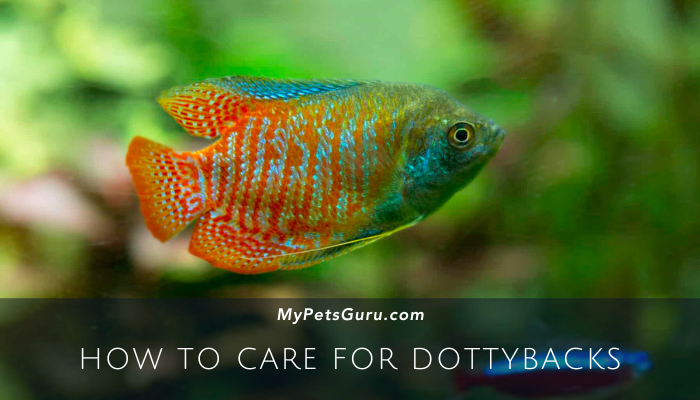Dwarf gouramis are vibrant and beautiful freshwater fish that are commonly kept in home aquariums. These small-sized fish are known for their vibrant colors and peaceful temperament, making them a popular choice for both beginner and experienced fish keepers. Despite their small size, dwarf gouramis require proper care to ensure they thrive in their aquatic environment. In this article, we will discuss the essentials of caring for dwarf gouramis to keep them healthy and happy.
Understanding Dwarf Gouramis
Before diving into the details of care, it’s important to understand some basic facts about dwarf gouramis. These fish are native to South Asia and are often found in slow-moving freshwater habitats such as lakes, ponds, and streams. They belong to the family Osphronemidae and their scientific name is Trichogaster lalius.
Setting Up the Aquarium
Creating the perfect habitat for your dwarf gouramis is crucial to their well-being. Here are some key considerations when setting up their aquarium:
Tank Size and Environment
Dwarf gouramis can be comfortably housed in a tank as small as 10 gallons, but a larger tank will provide them with more space to swim and explore. It’s important to provide plenty of hiding spots and plants, as dwarf gouramis appreciate a well-planted aquarium. A soft substrate, such as sand or fine gravel, is also ideal for these fish.
Water Conditions
Maintaining proper water conditions is essential for the health of your dwarf gouramis. The water temperature should be kept between 75°F to 82°F (24°C to 28°C) with a pH level of 6.0 to 7.5. It’s important to use a good quality water conditioner to remove any chlorine or chloramine from the tap water and to keep ammonia and nitrite levels at zero.
Filtration and Aeration
A filtration system is necessary to maintain good water quality and remove waste. A sponge or hang-on-back filter is often sufficient for a dwarf gourami aquarium. Additionally, providing adequate aeration, either through an air stone or a dedicated air pump, will ensure sufficient oxygen levels for the fish.
Feeding Dwarf Gouramis
Proper nutrition is essential for the health and longevity of your dwarf gouramis. In their natural habitat, they are omnivores, feeding on small insects, crustaceans, and plant matter. In the aquarium, a balanced diet can be achieved through a combination of dry flakes, pellets, and frozen or live foods.
Dry Flakes and Pellets
High-quality fish flakes and pellets formulated for tropical fish will form the basis of their diet. Look for brands that contain a variety of ingredients such as fish, shrimp, and spirulina. Feed small amounts two to three times a day, only giving them what they can consume within a few minutes.
Frozen and Live Foods
To provide a varied diet and to mimic their natural feeding habits, supplement their diet with frozen or live foods. Bloodworms, brine shrimp, and daphnia are excellent choices. These can be fed once or twice a week as a treat to keep them healthy and enhance their natural colors.
Maintaining Water Quality
Regular maintenance and monitoring of water parameters are crucial for the well-being of your dwarf gouramis. Here are some key steps to ensure good water quality:
Regular Water Changes
Perform regular water changes to remove any accumulated waste, excess nutrients, and toxins. A 10-20% water change every week will help maintain stable water conditions and keep your fish healthy.
Monitoring Ammonia, Nitrite, and Nitrate Levels
Test the water parameters regularly using a reliable aquarium water test kit. Ammonia and nitrite levels should always be zero, and nitrate levels should be kept below 20 ppm. If ammonia or nitrite levels are elevated, it indicates a problem with the aquarium’s biological filtration, and corrective measures should be taken immediately.
Cleaning the Aquarium
Clean the aquarium regularly, removing any uneaten food, debris, and algae. Use a gravel vacuum during water changes to remove waste and excess detritus from the substrate. Avoid using harsh chemicals or detergents when cleaning, as they can be harmful to the fish.
Common Health Issues
While dwarf gouramis are generally hardy fish, they can be prone to a few common health issues. Being aware of these issues can help you spot and address them promptly. Some common health issues include:
- Dwarf Gourami Disease: This viral infection can cause lethargy, loss of appetite, bloating, and discoloration. Quarantine infected fish and treat with medication if necessary.
- Fin Rot: Poor water quality and stress can lead to fin rot, which is characterized by frayed or disintegrating fins. Improve water quality and consider treating with an appropriate antibacterial medication.
- Ich: Ich, or white spot disease, is a parasitic infection that causes small white spots on the fish’s body and fins. Increase the water temperature to around 86°F (30°C) and treat with a suitable Ich medication.
Frequently Asked Questions (FAQs)
How often should I feed my dwarf gouramis?
Dwarf gouramis should be fed small amounts two to three times a day, providing them with what they can consume in a few minutes.
Can dwarf gouramis live with other fish in the same aquarium?
Yes, dwarf gouramis are generally peaceful fish and can coexist with other peaceful community fish. However, it’s important to ensure compatible tank mates and provide enough space and hiding spots for each fish.
How can I tell the gender of my dwarf gouramis?
Male dwarf gouramis have vibrant colors and longer fins compared to females. Males also have a pointed dorsal fin, whereas females have a rounded dorsal fin.
Should I provide a heater for my dwarf gourami aquarium?
Yes, dwarf gouramis require a stable water temperature between 75°F to 82°F (24°C to 28°C). A heater should be used to maintain the desired temperature range.
Caring for dwarf gouramis involves creating a suitable environment, providing balanced nutrition, and maintaining good water quality. By setting up the aquarium correctly, feeding a varied diet, and regularly monitoring water parameters, you can ensure the health and well-being of these beautiful fish. Remember to watch out for common health issues and address them promptly. With proper care, your dwarf gouramis will thrive and bring joy to your aquarium for years to come.

Hi, I’m Lila Hart, and I’m just as fish-obsessed as they come! I’ve been enamored with aquatic life since I was a little kid. Now, I’m a marine biologist with over 3 years of hands-on experience in the world of pet fish.
I’ve learned the ropes of fishkeeping through trial and error, and I’m excited to share my knowledge with you. My mission is to help you create a thriving aquatic paradise for your finned companions. Together, we’ll explore the fascinating underwater world of pet fish!

